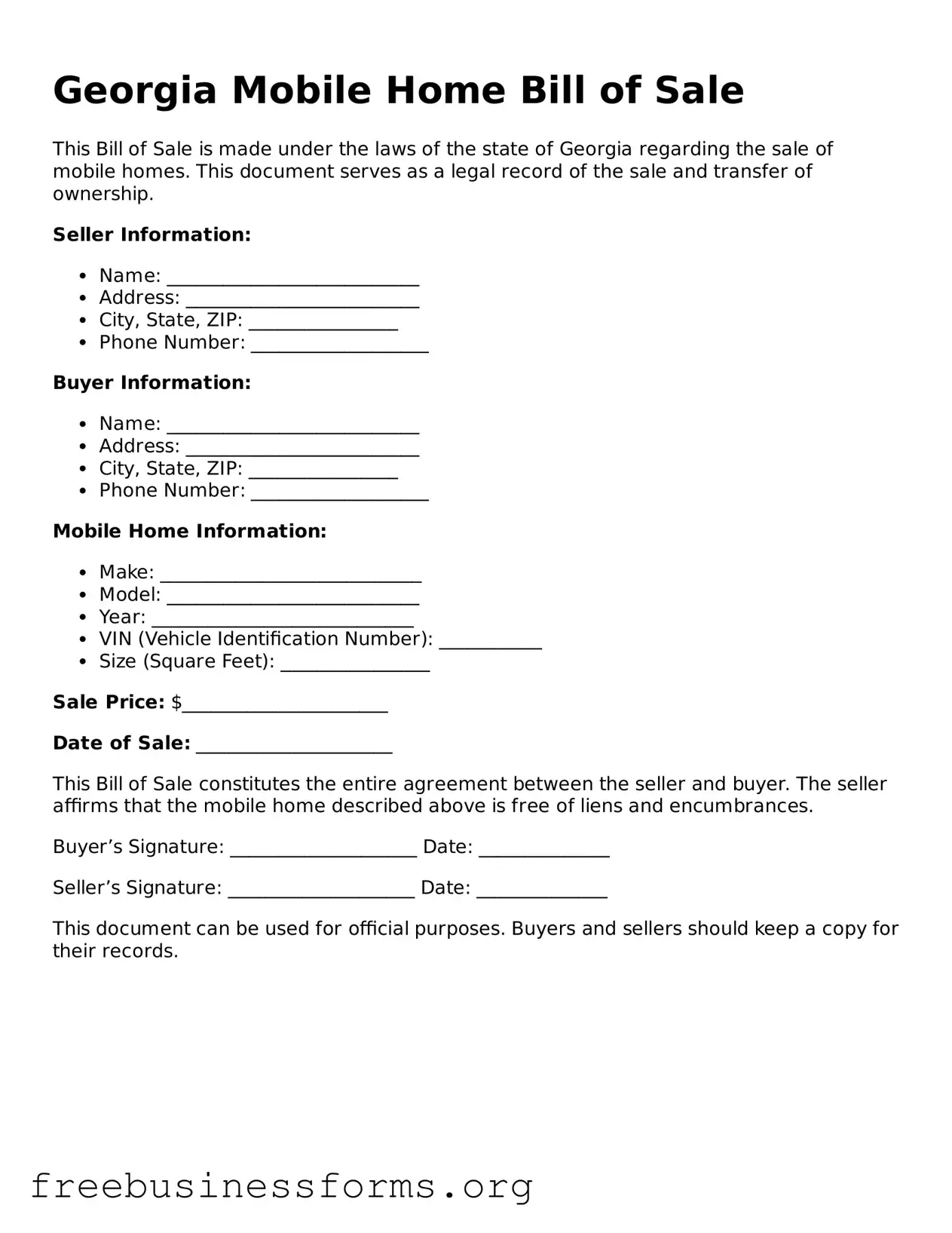Blank Mobile Home Bill of Sale Template for Georgia
The Georgia Mobile Home Bill of Sale form serves as a vital document in the transfer of ownership for mobile homes within the state. This form not only provides essential details about the transaction but also ensures that both the seller and buyer are protected throughout the process. Understanding its significance can simplify the buying and selling experience for all parties involved.
Open Form Here

Blank Mobile Home Bill of Sale Template for Georgia
Open Form Here

Open Form Here
or
↓ PDF File
Quickly complete this form online
Complete your Mobile Home Bill of Sale online quickly — edit, save, download.